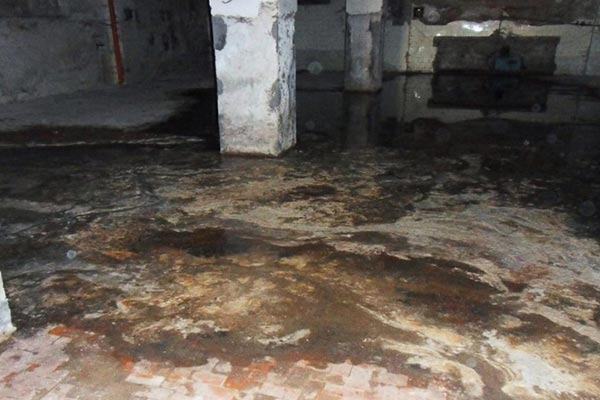In this comprehensive post, we'll go over;
The most common causes of sewer backup, how to recognize the issue and what to do.
You'll also learn;
- How to prevent sewer backup at home
So if you've ever asked yourself any of these questions, you'll love this post!
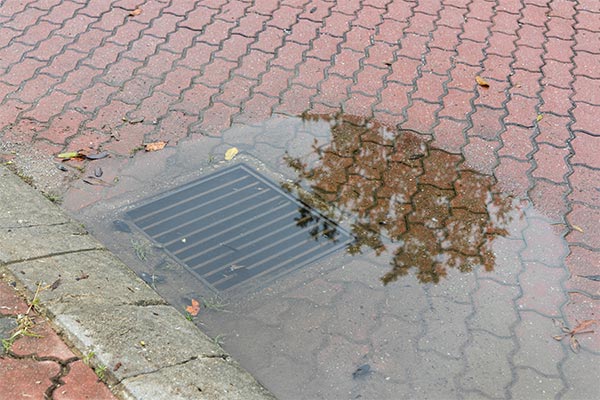
Many people think that sewage comes just from the home, like what goes down the toilet. Showers, toilets, utility sinks are connected to a sewer drain which takes all the hazardous waste from your home. But sewage can also come from storm drains.
When the town/city sewer system is being overwhelmed, such as during heavy rainfall, the storm drains can become backed up. Those who have basement drains may experience sewer flooding coming up through the drain.
The IICRC considers sewage as category-three (grossly contaminated) black water. Even if it looks relatively clean, it is still sewer water that can carry many toxins and bacteria that are hazardous.
Listed below are some of the common causes of sewer overflows.
Causes of Sewer Backup
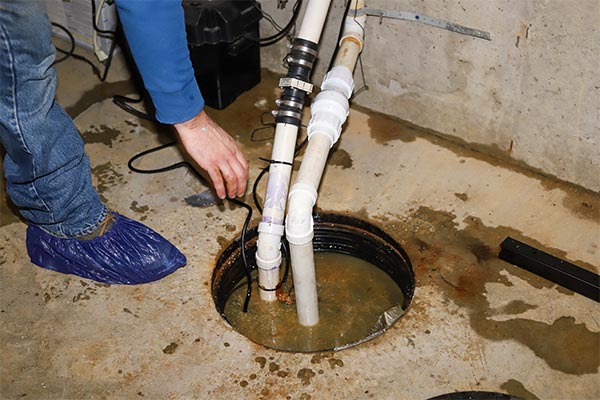
Tree Roots - Smaller roots tend to gravitate to the cracks in pipes whether they be sewer lines or water lines looking for moisture. As they grow and get larger, the roots can break open the pipes causing sewer backups and flooding. There are times when larger trees on a nearby property could be causing the issue due to the roots growing long.
Blockage at the Sanitary Main - Occurs at the mail line owned by the town/city. These blockages can cause basement floor drains to overflow with sewage from the main.
Older Sewer Systems - The majority of the pipes used for wastewater in the US are on average 45 years old. Most pipes last between 50-100 years. The older the pipes get, the more prone they become to cracks and breakage.
Heavy Rain or Excess Snowmelt - A big storm bringing lots of rain can be a big problem for sewer systems. Excess rain can be overbearing at times causing water backflow. This can also occur in the spring if there has been a lot of snow. The melting snow will runoff into the storm drains which could also cause flooding.
Blockages in Indoor Plumbing - Clogs in the toilet or drains can create indoor plumbing problems. Hair, grease, grime, and solid materials are the most frequent culprits of in-home clogs.
Failed Sump Pump - If a sump pump sucks up dirt or gravel it can cause a clog. If this happens, the motor can get damaged preventing it from working properly.
How to Prevent Sewer Backups
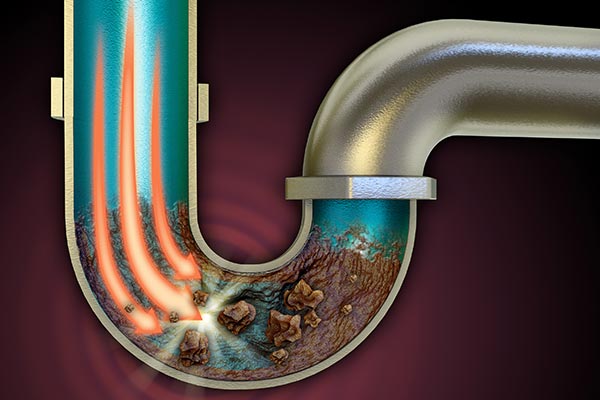
- Don’t put oil or grease down the drain. It may seem good enough to rinse it down with hot water, but when the grease eventually cools it solidifies and can cause clogs in the drains and sewer lines.
- The only items that should be flushed down a toilet are human waste and toilet paper. Other items such as wipes, paper towels, cloth items, and even feminine products can cause a clog and create a sewer backup problem. These other items don’t dissolve in the way toilet paper does.
- PVC or plastic pipes are less likely to be infiltrated by tree roots. If the lines need to be replaced, it would be a good idea to use plastic or PVC instead. If your lines are near trees, it might also be a good idea to regularly cut the roots to prevent them from causing damage.
- Sump pumps, french drains, and flood control systems should not be hooked up to the sewer line. It is illegal to do so. In the event an older home has lines hooked up this way, consult a plumber to fix the connections.
- Backwater valves can be installed into either a sewage line or a drain line in your home. This prevents sewage from coming back into your home once it has gone out.
- Annual drainage system Inspections can be useful in finding clogs before they get too bad. Mostly, any buildup or clog can be cleaned out with a powerful water stream. Additionally, cracks or fractures in the pipe can also be found during a scope inspection. With it being found before it ruptures or breaks, it can be fixed before damage is caused.
How to Recognize a Sewer Backup
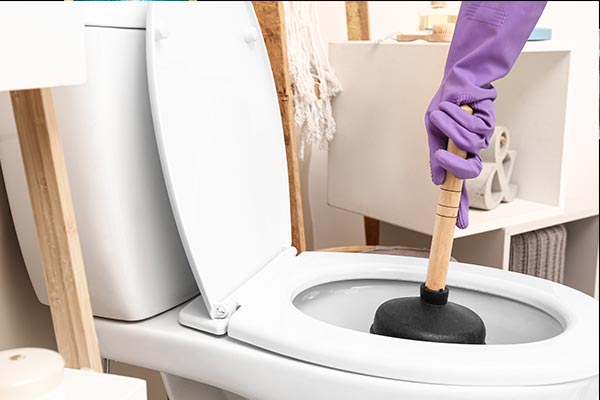
*If you see seeping basement floor drains
*Unfamiliar and foul odors coming from drains
*Toilets won’t flush and nothing is helping
*Multiple drains are clogged
*Using the toilet causes a water backup in the kitchen sink
What to do if you have a Backed Up Sewer
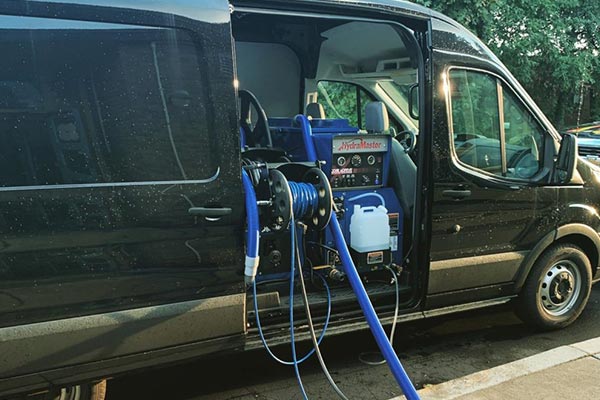
If the time comes and you do find you have a sewage backup issue, your safest option is to contact the professionals at Rock Emergency. Being certified by the IICRC allows for safe, effective, sewage and water damage cleanup and restoration. There are some things you can do prior to the experts coming to your home or business.
You should do your best to get away from the affected area. Sewage can be extremely hazardous to people and pets. If you must go into the area, be sure to wear PPE including rubber boots.
If it can be done safely, turning off power sources as well as the main water line will be helpful in making the area less dangerous or causing more damage. You will also want to ventilate the area as much as you can to help reduce the odors as well as start to get the space drying out.
If there is only a small amount of water in the area, you can use a wet-dry vacuum to remove the water. But with that said, even a few inches can fill that tank 40-50 times. When the water is removed, you will need to clean and disinfect the entire area.
This includes the floors, walls, carpeting, and anything else salvageable. It might be a good idea to have the area and items professionally cleaned if you are not having professionals come take care of the sewer issue.
The ease of calling Rock Emergency is that they will remove all the waste from the area, including water and other bacteria and toxins. Additionally, they are able to restore any water damage that may have been caused. While most homeowners insurance does not cover sewer backups, Rock Emergency will work with your insurance company.
Rock Emergency takes pride in the efficiency, and expertise provided in all the work we do. We will restore your property and make it safe for you to be in again, all in a timely manner.
Share this Post

